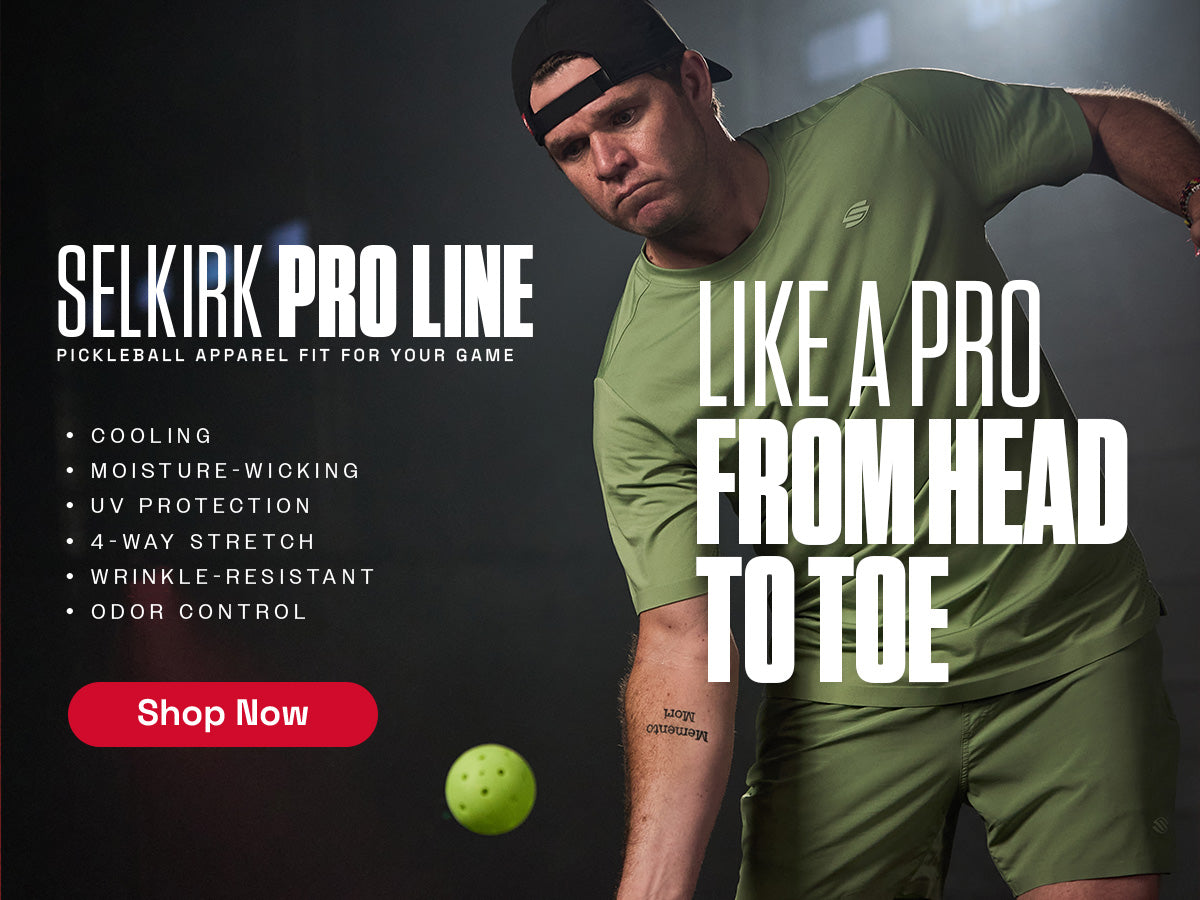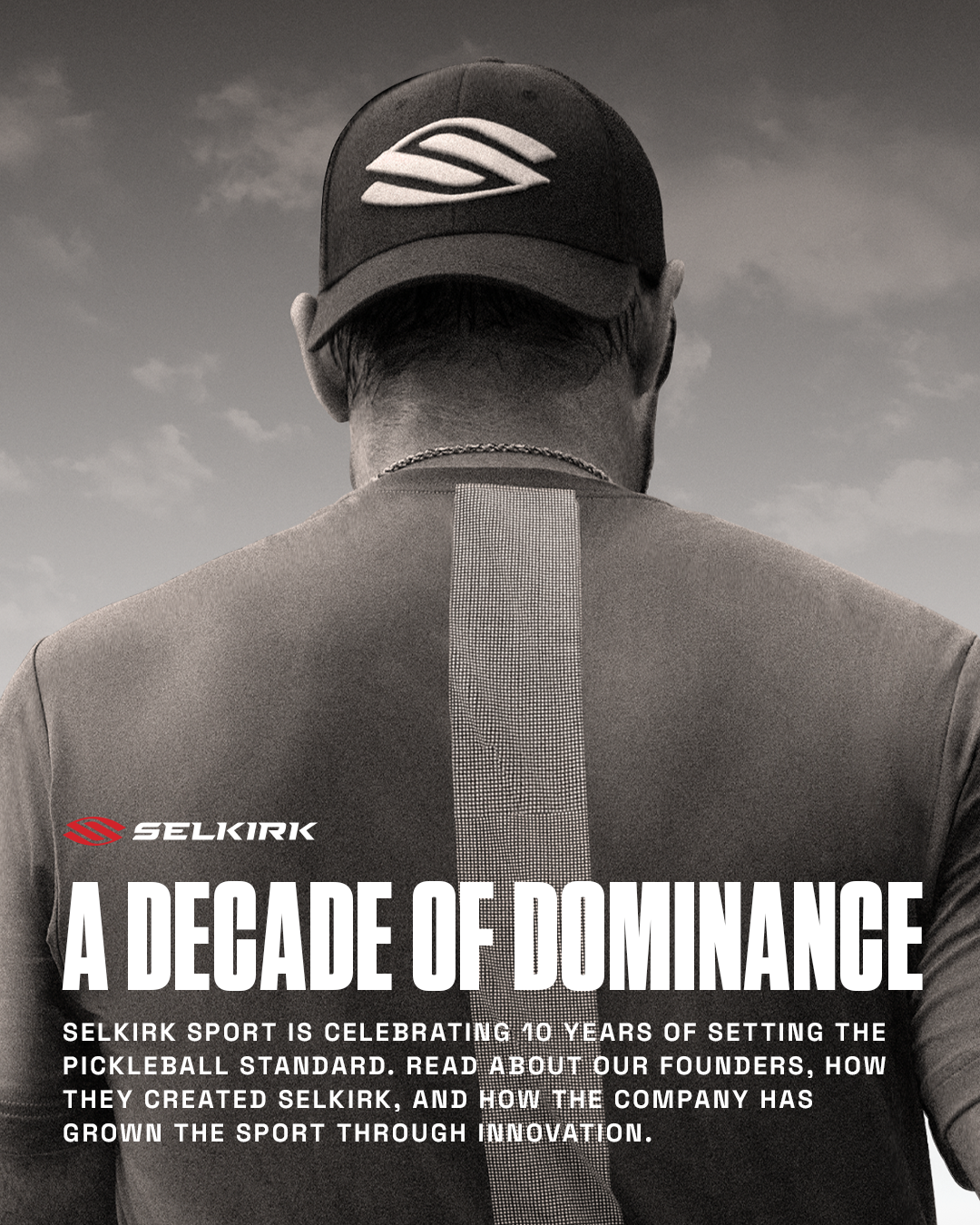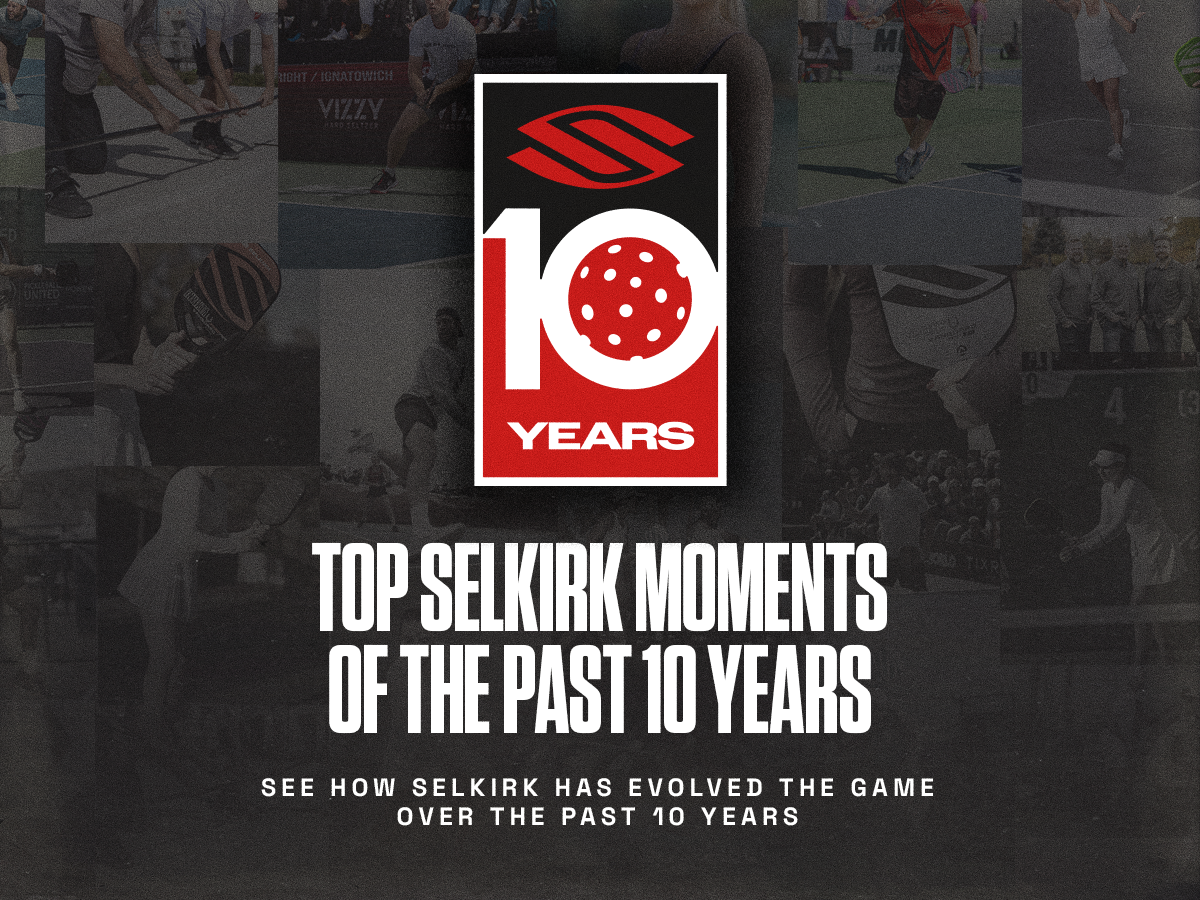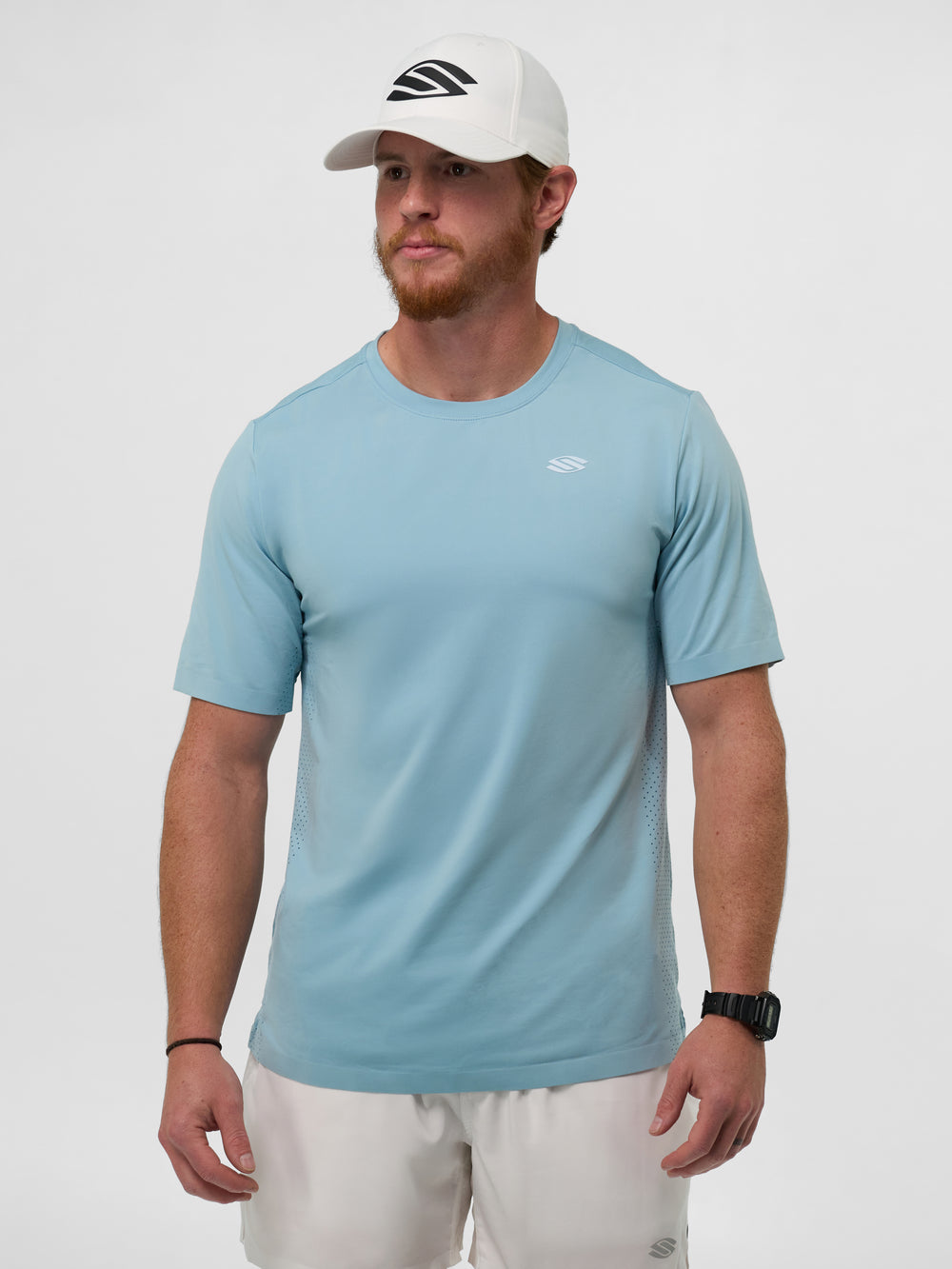The early aughts were defined by boy bands, the rise of social media, Pottermania, and the release of the iPod, to name a few. It also happens to be when Rob and Mike Barnes, founders of Selkirk Sport, first embarked on their entrepreneurial journey.
At the ages of 15 and 17, the brothers began a business in their father’s basement, hoping to make a few extra bucks. Little did they know their small business would evolve into a successful career as CEOs of a company now regarded as the top manufacturer of pickleball paddles.
As Selkirk Sport celebrates its 10-year anniversary, the family reflected on the journey that brought them to the forefront of the industry.
Humble beginnings
It started as a school project. As homeschooled students, Jim Barnes encouraged his sons to take classes that would benefit their future careers
Recognizing that many successful people in Coeur d’Alene, Idaho, were business owners, Jim enrolled his sons in a business course. As part of the course, the brothers created their first company — a sporting goods business focused on airsoft parts and tactical gear.
“We were doing it as a school project to learn and make some extra money,” Rob recalls. “But after a few months, we were succeeding. It was actually working as a business.”
At the time, Rob was interested in a career in law enforcement and Mike was still considering his career options, but Jim recognized the potential his sons had in business.
“They were just natural from the beginning, as far as understanding business,” Jim says. “I was pleasantly surprised by their business acumen as teenagers. They basically did everything on their own. I was there to open a bank account and they did the rest.”
By the ages of 16 and 18, the brothers had received their GEDs and committed to the business full-time, often putting in 70-80 hour work weeks to keep it afloat.
Initially, the boys each took only a $500 paycheck each month, while Jim, who had just retired from a career as a fireman, didn’t take a salary for two years.
“Dad basically said, ‘You can either go to college, and I can help you with that. Or you could stay in business, and I can help you with that,’” Rob says. “And that’s what we chose to do because we saw that it would be more fruitful long-term.”
As the business grew, the family converted their basement and garage into a makeshift warehouse. Once the product began seeping into the living room, they knew they needed a better solution.
The family acquired its first warehouse from which to ship airsoft parts, and with extra space, built an area for their latest obsession: pickleball.
“We just immediately fell in love with the game,” Mike says. “And we thought, ‘This is what we should be doing.’”

The early days of Selkirk
When the Barnes family began playing pickleball in 2010, it was relatively unknown. Those who played often did so on gym floors with wooden paddles.
Transitioning their business model to focus on the pickleball industry was a risk, but one the family felt confident would pay off.
“It wasn’t a trendy sport, but because we played it, we knew it had potential. The word everybody used was ‘addicting,’” Mike recalls. “But something we believe wholeheartedly is that to succeed, in some degree, you have to be a contrarian. So for us to get into the industry before it was trending was key because we knew it would only keep growing in popularity.
In 2014, the pickleball industry was nascent, comprised mostly of mom-and-pop brands that sold wooden paddles. As the brothers began dreaming up the company, they aimed to create a brand with performance at the forefront.
After collecting market research to understand the demands of players, the family began developing paddles with new materials, such as fiberglass and graphite to better meet the growing demand.
“Believe it or not, we got a lot of industry pushback when we started,” Rob says. “People didn’t like that we were taking it seriously by pushing the boundaries of technology or promoting professionals. But we had a goal to turn pickleball into a respected sport.”
A commitment to innovation
As a company, Selkirk Sport is deeply vested in growing the game of pickleball by supporting the unmet needs of players.
Of course, this commitment to innovation starts with paddles. Over the last decade, Selkirk has released made-in-the-USA industry-leading paddles that feature cutting-edge materials and unique designs.
Whether through the Selkirk Sport main line or the SLK line, the company focuses on constant improvement to deliver the best products to players, no matter their level of play.
“A lot of companies get stuck in the status quo of how things have been done, but it really gets us excited to look at how we can do things differently to break the mold and set a new trail for our brand and the sport,” Mike says.
One way in which the company continues to improve its offerings is through Selkirk LABS, opens in a new tab, a key innovation hub, which invites players to be a part of the research and development process by offering their feedback on Selkirk’s latest advancements.
Tom Barnes, the youngest Barnes brother who joined the company as Director of Research and Development, says the company is always working to perfect its products.
“We are constantly exploring different combinations of materials, such as face and core types to get the most out of a paddles,” he says. “Our discovery process involves hundreds of iterations, testing every possibility to find the perfect formula.”

Supporting the passion for pickleball
To further support the growth of the sport, the founders began looking at other service areas Selkirk could provide. That’s where the idea for Selkirk Pickleball TV — pickleball’s first free streaming service — was created.
“Our company was really born in the digital age, whereas a lot of our bigger competitors that have branched into pickleball where born in the TV age,” Rob says. “We just felt like we could kind of break the rules and try launching our own streaming app. We’re not just creating products to sell products. We want to build a brand and an ecosystem that can support itself.”
As professional pickleball tours like the PPA Tour, opens in a new tab and the APP Tour, opens in a new tab emerged, Selkirk began signing professional athletes. As the pros were relatively unknown, Selkirk was selective about who was signed.
“In the beginning, it was a lot of experimenting,” Rob says. “We didn’t have one of the largest teams, but we had one of the best-promoted teams because were careful to sign players with charisma.”
When viewership of professional pickleball began to pickup in 2020, the company took a more aggressive approach with player signings, adding high-performing and high-profile players.
Today, Team Selkirk boasts a deep roster of pros, including the world ranked No. 2 female Catherine Parenteau, the No. 1 men’s doubles player Dylan Frazier, and former tennis Olympian Jack Sock.
Now, the company is also focused on supporting the future stars of the game by eliminating barriers to entry through various programs, including the Emerging Pros team, which supports up-and-coming professionals, and the Selkirk Junior team, which supports children who play competitively.
Outside of competitive play, the company also maintains an Advocate program, which plays a crucial role in promoting pickleball in local communities, with brand ambassadors working to expand the sport's reach. To date, more than 2,300 players from 49 states have joined the Advocate Program and led initiatives to grow the game globally.
To reach new communities, the Selkirk Growth program donates equipment to underserved communities, schools, and non-profits. Since its launch, more than 25,000 paddles have been donated to communities in need.
“One of our core missions is to fuel the passion found inside every pickleball player,” Mike says. “Supporting these programs and identifying coming trends are just a few ways we hope to achieve that mission.”
Exponential internal growth
For the first six years of the company, Mike and Rob made an average salary equivalent to minimum wage, and only added a handful of employees to the team.
“There were a lot of sleepless nights, a lot of days trying to figure out how to make payroll,” Mike recalls. “It’s our company so every problem is our problem, to some degree. But thankfully, through it all, Providence always worked out for us.”
During and after the pandemic, the sport grew exponentially, claiming the title as the fastest-growing sport in America each year since 2022. What started as a humble company run entirely by family has now grown into an energetic outfit with more than 150 team members.
“It’s just surreal to us,” Mike says. “Five years ago, having a staff of 150 would have seemed impossible. If you would have told us that’s where we were heading, we would have said you’re crazy. But we’ve been so blessed to have strong, smart, talented people come join our company and they have truly helped shape its trajectory.”
Another decade to come
Of course, working with family hasn’t come without its challenges, but the brothers acknowledge they couldn’t have achieved their success without the entire Selkirk family — blood or not.
“We never could have done this alone,” Rob says. “The only way this company works is with all of us.”
Throughout the last decade, the brothers have learned a lot about themselves and the industry, and though they’ve had their challenges, they are grateful to be where they are.
“We’ve been blessed with a once in a lifetime opportunity to help shape an industry, and that’s pretty wild,” Mike says. “But it’s important to us to be humble in that and know that it’s by God’s grace that we’re here.”
Ten years in the industry is no small feat, but the brothers have no plans of stopping any time soon.
They remain focused on continuous improvement — investing in the products and people for the next trends within the industry. They hope to use data to drive decisions that keep Selkirk at the forefront of the industry for the months and years to come.
Most of all, they hope to continue delivering products and services that pickleball passionates are interested in.
“We try to keep the mentality of, ‘We’re building something for 10 years down the road,’” Rob says. “So, of course, we have to make decisions that will keep the lights on. But we also need to start planning for the future — so we are constantly investing in things that may not make sense right now, but they will two years from now. That mentality keeps us consistently at the forefront of the industry.”
























































